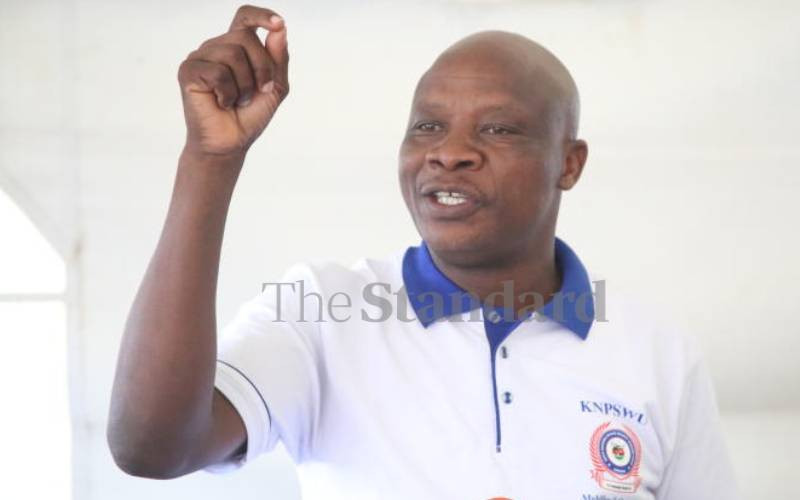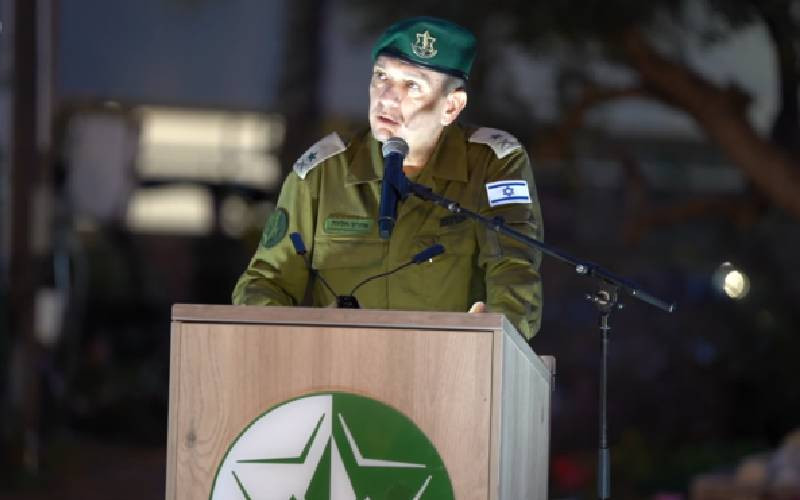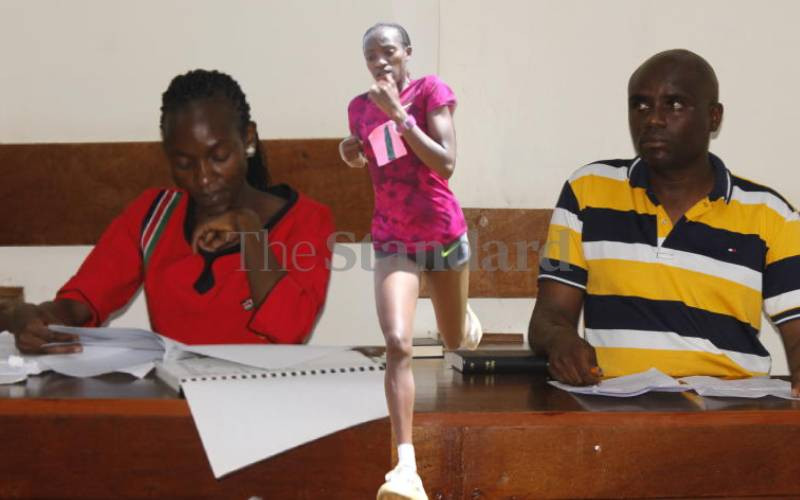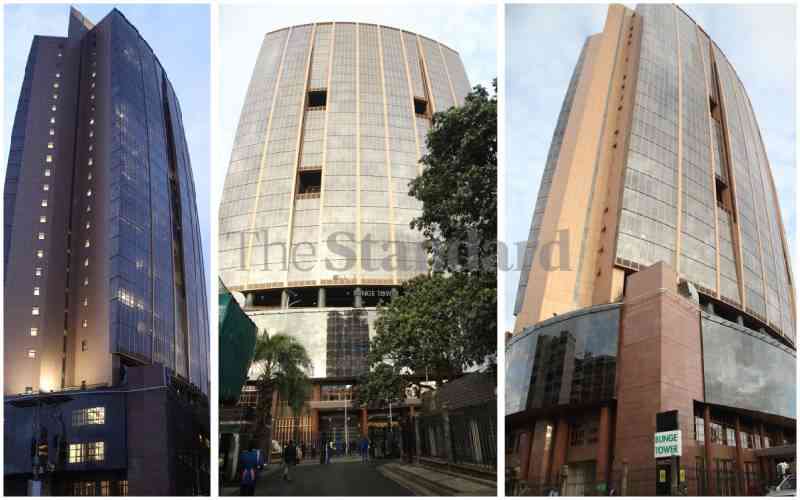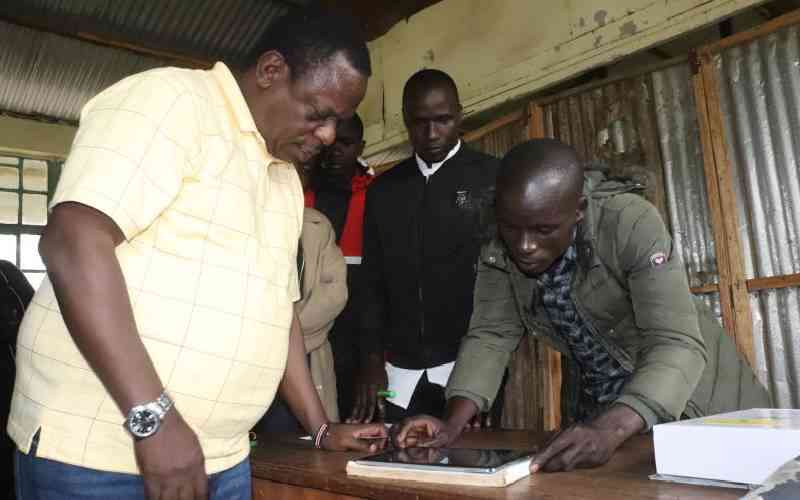 |
|
Building in Mpeketoni town razed down during an attack by armed militants. |
Lamu, Kenya: Top security officials in Lamu County who spoke to The Standard on Sunday in confidence, maintained that they had no intelligence that such an attack was in the offing.
“We received a memo from Vigilance House that we needed to be extra vigilant during the World Cup. But this was a memo that was circulated countrywide,” said an officer in the know.
He added: “As for what happened here, there was no indication of impending danger on the ground. If there was any intelligence that an attack had been planned somewhere and was going to be executed here, then we were kept in the dark about it. The government’s statement that we had not acted on intelligence reports took us by surprise,” he said.
Security forces, especially the police and the Provincial Administration, have been roundly blamed for the security lapse because it took many hours before they made a feeble attempt to respond to the attack.
It also emerged that despite claims that security forces were alerted of an impending attack, both the County Police Commander and County Commissioner were out of station. “The long serving County Commissioner Stephen Ikua, who also worked in the area as a DC, was in Malindi, while County Police Commander Leonard Omollo was in Lamu,” said a police officer in Lamu.
Police sources said a lot of officers were deployed in Mombasa earlier in the day because intelligence reports indicated an attack could have taken place at the CORD rally held at Tononoka grounds. So, with no response from the police, the gunmen went on a killing spree.
At Constarica Cinema, where some residents had gathered to watch a football match, the attackers flushed people out, lined the men on the ground and razed the place.
They did the same at Mama Monica’s Guesthouse, just opposite the cinema hall popular with civil servants. They lined up the men on the road and shot them in the head.
They then split and at round 9:30pm, a group of the militants announced their arrival at Kibaoni shopping centre, eight kilometres from Mpeketoni town, with a burst of gunfire.
David Njue Elija, like many of his neighbours, had been informed of the attack in Mpeketoni and they had alerted one another.
They hoped the attack would not spread beyond Mpeketoni, but after a while, they heard a burst of gunfire at Hongwe, halfway between Mpeketoni and Kibaoni.
Some of his neighbours rushed to their houses and locked themselves in. Njue, a police reservist, took his gun and rushed to the bushes nearby to lay ambush against the attackers.
Fellow reservists Alice Muthoni, Peter Njuguna Muchina and some neighbours joined them.
Although he knew by then that these were no ordinary criminals, he did not have the full picture of what they were taking up arms against.
As he crouched in the bushes, Geoffrey Kipkorir Chepkowny, a boda boda rider, was turning the corner towards his home in Hongwe. He had gone to visit a friend and was returning home to Daisy Mbinya, his five-month pregnant girlfriend.
Stay informed. Subscribe to our newsletter
The militants who had come in the two matatus stopped him and after a brief conversation, they shot him once in the head. He died on the spot. The celebratory gunfire they let out after this amidst chants of “Allah Akbar, Allah Akbar, Allah Akbar...” meaning “God is Great” in Arabic was deafening.
Before this moment, Njue and his three colleagues had contemplated taking the Islamists head-on. But the cold, casual execution of Chepkwony, 25, changed their minds. “They were so near us that I could see them very clearly and perhaps we could have hit one of them if we tried. But we were far outnumbered and they had crazy weapons. If we had fired, they were surely going to rain bullets and grenades on us. That would have been even more catastrophic because there were other civilians hiding with us in the bushes,” he said.
The attackers were so well prepared that they even had flares which they would occasionally shoot in the air to illuminate the areas they suspected their targets could be hiding in. So the three reservists chose caution over bravery and lived to tell the story. Soon after executing Chepkwony, the attackers blew up a Kenya Power transformer, sending the whole town into darkness.
The Islamists then went on the rampage, torching cars and buildings and flushing out men from their homes, lining them up on the road, shooting them and slitting their throats.
As they went about their macabre orgy, it became apparent to Njue that somebody, perhaps a local, who knew the town very well, was guiding the militants. “They went to my house and I heard one of them telling the others that it belongs to a police officer. They indiscriminately shot at the building,” he said.
Were it not for a call of nature, James Gichu, a personal assistant to Lamu County Deputy Governor Erick Mugo, would have been dead.
That evening, his friend James Muiruri Kimani had requested him to do wiring for a house his new house. At around 10:30pm, they left in their motorcycles to Kibaoni to watch a World Cup match.
But as they approached the centre, they saw their local bar, Deep Sea Inn, on fire. They rushed to help put it out. But just on the outskirts of Kibaoni petrol station, his phone rang.
They both stopped their bikes as he received the phone. Ahead of them was a white Isuzu truck whose lights had been dimmed.
Just on a whim, he switched off his bike, and walked off to the side of the road to pee as somebody narrated to him the madness that was wreaking havoc on their peaceful little town.
He had barely conversed with his interlocutor when gunshots rung out. Kimani fell from his motorbike. The headlight of his motorbike had given a perfect target for the militants. “I was so shocked that the phone in my hand dropped and shattered. I rolled down the grass several times and fell in a trench. They lit a flare in an attempt to locate me but lucky enough they failed,” he said.
At 11pm, the attackers paused for about half an hour, according to Daniel Kahosho, the head of KPR in Mpeketoni. They regrouped outside the AP station and he thought they were about to leave. “They were talking loudly in Somali and sometimes in Kiswahili. I raised my head a little and I heard them chanting Allah Akbar. One of them had a video and he was recording them. It was a huge one, almost the size of the ones used by TV crew,” he said.
Kahosho says as the militants were celebrating and filming themselves, one of them was holding two flags high up, one white and a dark one. He thought that these celebrations marked the end of their mission but once again, he was proven wrong. They boarded their vehicles and continued where they left.
At around four o’clock, Kahosho was informed by General Service Unit officers from Nyongoro that they were on their way.
He told them that he had been informed that the attackers were patrolling the Witu-Hongwe road in two matatus and that they should watch out for them.
As the officers rushed to the besieged towns, they bypassed the two matatus as they headed to Witu. Apparently the officers did not realise that they were the ones carrying the attackers. About 20 minutes later, a friend called him saying he had heard three loud explosions at an area called Maisha Mapya about 15 kilometres from Kibaoni.
Kahosho called the GSU officers and told them to back and pursue the attackers. When they arrived, they found the two matatus parked on either side of the road burning.
The militants had turned the minivans around to face Kibaoni, set them ablaze and entered the foreboding marshy Boni forest to make their escape on foot.
Kahosho retrieved his gun from home and joined the search party of the police officers that first pursued them on foot on that Monday morning. The horror the fleeing militants left in their wake was to be apparent when the search party reached the remote villages of Kaisari, Poromoko and Nyatha.
The police officers found that the militants, even in their retreat, had found enough time to shoot and slit the throats of nine men whom they had crudely pulled from their houses. Most of the victims were peasant Giriama farmers, struggling to make a living from harsh circumstances and who probably had no idea what had taken place earlier.
Kahosho said they lost the trail that day of the militants at Nyatha, a place of many manyattas belonging to nomadic pastoralists who graze their cattle there. “We followed their footsteps but at Nyatha, the footsteps suggested that they had turned around the way they had come, which was impossible,” he said.
The herders at the manyattas said they had not seen the militants and the police officers retreated to comprehend the scale and magnitude of the horror of this small town and to strategise on how to hit back.
 The Standard Group Plc is a
multi-media organization with investments in media platforms spanning newspaper
print operations, television, radio broadcasting, digital and online services. The
Standard Group is recognized as a leading multi-media house in Kenya with a key
influence in matters of national and international interest.
The Standard Group Plc is a
multi-media organization with investments in media platforms spanning newspaper
print operations, television, radio broadcasting, digital and online services. The
Standard Group is recognized as a leading multi-media house in Kenya with a key
influence in matters of national and international interest.
 The Standard Group Plc is a
multi-media organization with investments in media platforms spanning newspaper
print operations, television, radio broadcasting, digital and online services. The
Standard Group is recognized as a leading multi-media house in Kenya with a key
influence in matters of national and international interest.
The Standard Group Plc is a
multi-media organization with investments in media platforms spanning newspaper
print operations, television, radio broadcasting, digital and online services. The
Standard Group is recognized as a leading multi-media house in Kenya with a key
influence in matters of national and international interest.



